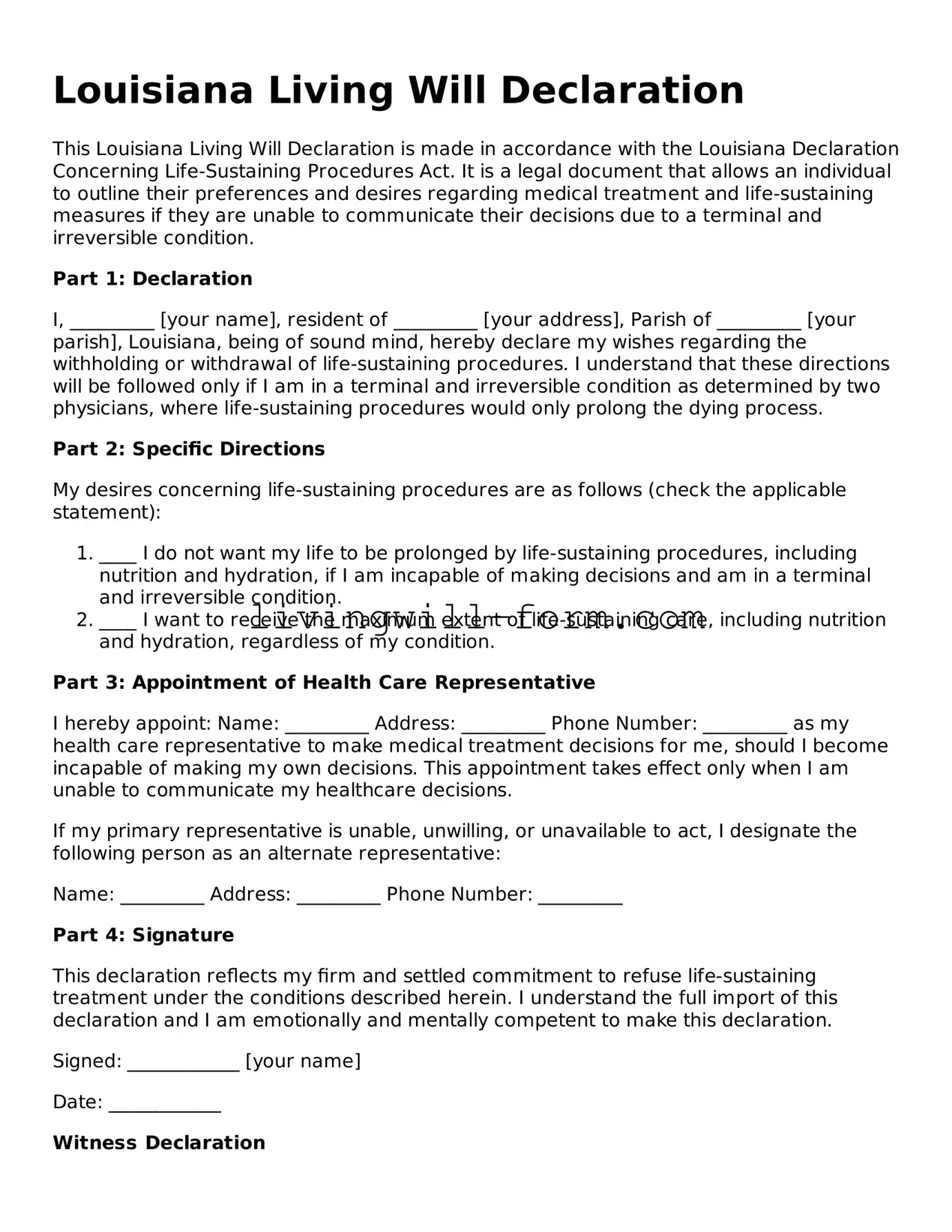Louisiana Living Will Declaration
This Louisiana Living Will Declaration is made in accordance with the Louisiana Declaration Concerning Life-Sustaining Procedures Act. It is a legal document that allows an individual to outline their preferences and desires regarding medical treatment and life-sustaining measures if they are unable to communicate their decisions due to a terminal and irreversible condition.
Part 1: Declaration
I, _________ [your name], resident of _________ [your address], Parish of _________ [your parish], Louisiana, being of sound mind, hereby declare my wishes regarding the withholding or withdrawal of life-sustaining procedures. I understand that these directions will be followed only if I am in a terminal and irreversible condition as determined by two physicians, where life-sustaining procedures would only prolong the dying process.
Part 2: Specific Directions
My desires concerning life-sustaining procedures are as follows (check the applicable statement):
- ____ I do not want my life to be prolonged by life-sustaining procedures, including nutrition and hydration, if I am incapable of making decisions and am in a terminal and irreversible condition.
- ____ I want to receive the maximum extent of life-sustaining care, including nutrition and hydration, regardless of my condition.
Part 3: Appointment of Health Care Representative
I hereby appoint:
Name: _________
Address: _________
Phone Number: _________
as my health care representative to make medical treatment decisions for me, should I become incapable of making my own decisions. This appointment takes effect only when I am unable to communicate my healthcare decisions.
If my primary representative is unable, unwilling, or unavailable to act, I designate the following person as an alternate representative:
Name: _________
Address: _________
Phone Number: _________
Part 4: Signature
This declaration reflects my firm and settled commitment to refuse life-sustaining treatment under the conditions described herein. I understand the full import of this declaration and I am emotionally and mentally competent to make this declaration.
Signed: ____________ [your name]
Date: ____________
Witness Declaration
We, the undersigned, declare that the declarant willingly and voluntarily signed this declaration in our presence, that the declarant appears to be of sound mind and not under duress, fraud, or undue influence, and that we are not the person appointed as agent or alternate agent by this document.
Name: _________ [Witness 1 Name]
Address: _________ [Witness 1 Address]
Sign: _________ [Witness 1 Signature]
Date: _________
Name: _________ [Witness 2 Name]
Address: _________ [Witness 2 Address]
Sign: _________ [Witness 2 Signature]
Date: _________
Part 5: Notarization
This document must be notarized to be legally binding. The notary public will verify the identity of the declarant and the witnesses.
Notary Public: ____________ [Name]
Seal: ____________
Date: ____________

